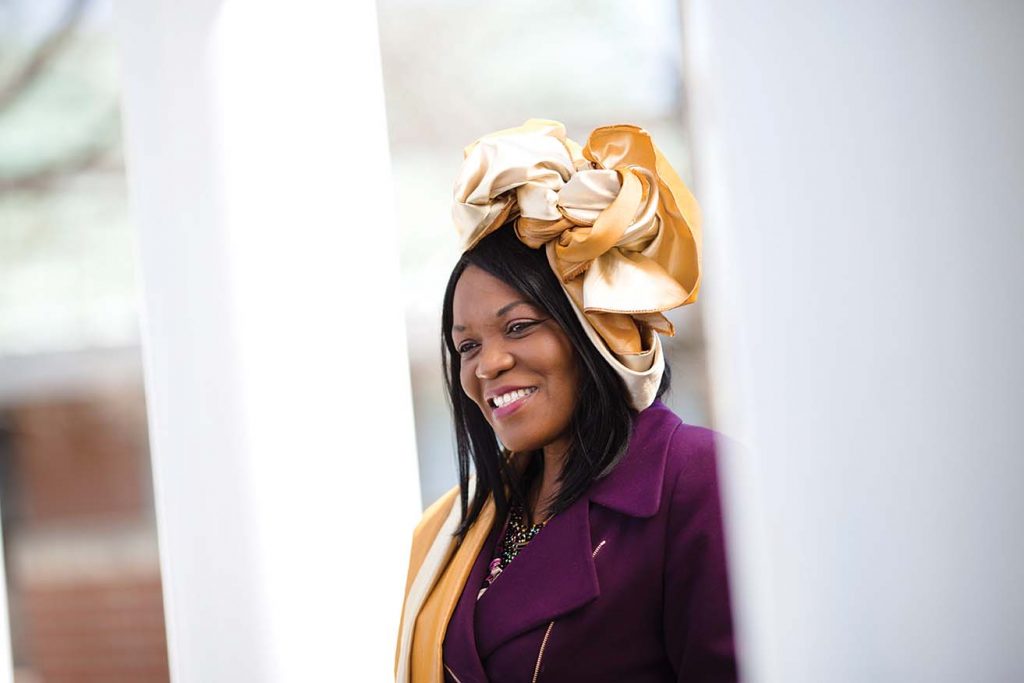
Zindaba Nyirenda, a 2010 Roosevelt University graduate and princess in Zambia, has dedicated most of her career to the recognition of equality in Africa, and fighting for the rights of women and children in Zambia and around the world.
Now working as an instructional designer for AbbVie in Mettawa, Ill., she plans to go back to Zambia this year to run for election and be part of the next cabinet in the National Assembly, trying to represent women and children and help them through education based on technology.
Nyirenda thinks one of the most important problems for the African people is the brain drain that men and women like her represent. The dispersion, all over the world, of well-trained students and workers from Africa makes the situation comparable to a diaspora phenomenon. She said “Africa is missing leadership because of this, and we need to have a voice.
Born as an Nkhosikazi princess of sixth generation Shaka Zulu ancestry in Zambia, she said that “the title there really doesn’t give you anything. It’s a symbol. It’s a status. It just indicates that I come from a royal family.” Despite that, she is trying to use her title to help change her country through the Parliament, using the knowledge she acquired during her education.
“I have to use everything I have learned to make a difference for all people.
– Zindaba Nyirenda
Nyirenda studied public administration at the University of Zambia in the early 1980s. At that time, she noticed the differences between men and women in her country: just 10 percent of the students were girls, and less than a tenth of them were in engineering schools.
Later, when she lost her two younger brothers, Nyirenda realized that her first-born sister was deprived of her right to be the leader of her tribesmen and didn’t enjoy the same access to power afforded men. “Just because we are women doesn’t mean we cannot be leaders recognized as capable in our country. Women, too, are just as capable,” she said.
She graduated from the University of Zambia in 1985, the same year she moved to the U.S. to follow her husband, who had an opportunity to further his education here. For 20 years, she dedicated herself to raising her three children and did not work outside her home, though she did establish a non-profit organization she ran from home and managed her own bridal shop, a small retail business that afforded her the flexibility to be with her school toddlers for all of their school functions. However, when her youngest child got to high school, Nyirenda recognized the great timing and opportunity she had put on hold to attain her master’s degree.
“After the kids grew up, time opened up for me to go back to having the career I had put on hold,” she said. She chose Roosevelt University to advance her education and specialized in the field of training and development.
She enrolled at Roosevelt not only for its social justice mission, but also because the program offered courses relevant to her real life quest for knowledge. Another advantage was taking courses online at her pace and the flexibility of studying anywhere, anytime, and not being limited by time or space was the ultimate freedom. This was a trendy new way of learning as she discovered the technological trends incorporated in the delivery of her courses. This opened her eyes to the digital era and the possibilities technology affords.

Critical thinking was one of the main attributes of the program for her personal development and the online teaching and application offered learning technologies and possibilities to educate the world beyond borders. “Why then are some countries still lagging behind in education?” she wondered. “Roosevelt raised my quest to the next level, creating a world of possibilities where no child needs to be left behind.”
It was during these years of “training” that she wrote a book about the “inequality issues” that are prominent in the world economies, and Africa suffers the most in comparison to the rest of the world.
In Ta-Lakata, The Tears of Africa, Nyirenda describes her life as a princess in Zambia and how, despite her wealthy upbringing, that wasn’t enough to avoid the tragedies that impacted her family as well; tragedies that she sees as having been perpetuated by poverty-stricken economies with poor or inadequate healthcare systems. Both her father and mother died of illnesses that could have been prevented, and through these hard experiences Nyirenda tried to make the case for what it will take to make a difference and improve lives in Africa.
“Being in the U.S., I realized how poor our economies were and how far behind we lagged,” she said. That is why she was interested in attaining a higher degree that would help her understand how to solve these complex problems of needless poverty, given that most of Africa’s countries were very rich in natural resources. “We are truly not that poor. We have diamonds, gold, copper, uranium, oil and animals. Why, though, do we have such immense poverty? We must find practical solutions together to alleviate immense poverty and suffering,” she said. “I have to use everything I have learned to make a difference for all people.”
Roosevelt has supplied her with the training.